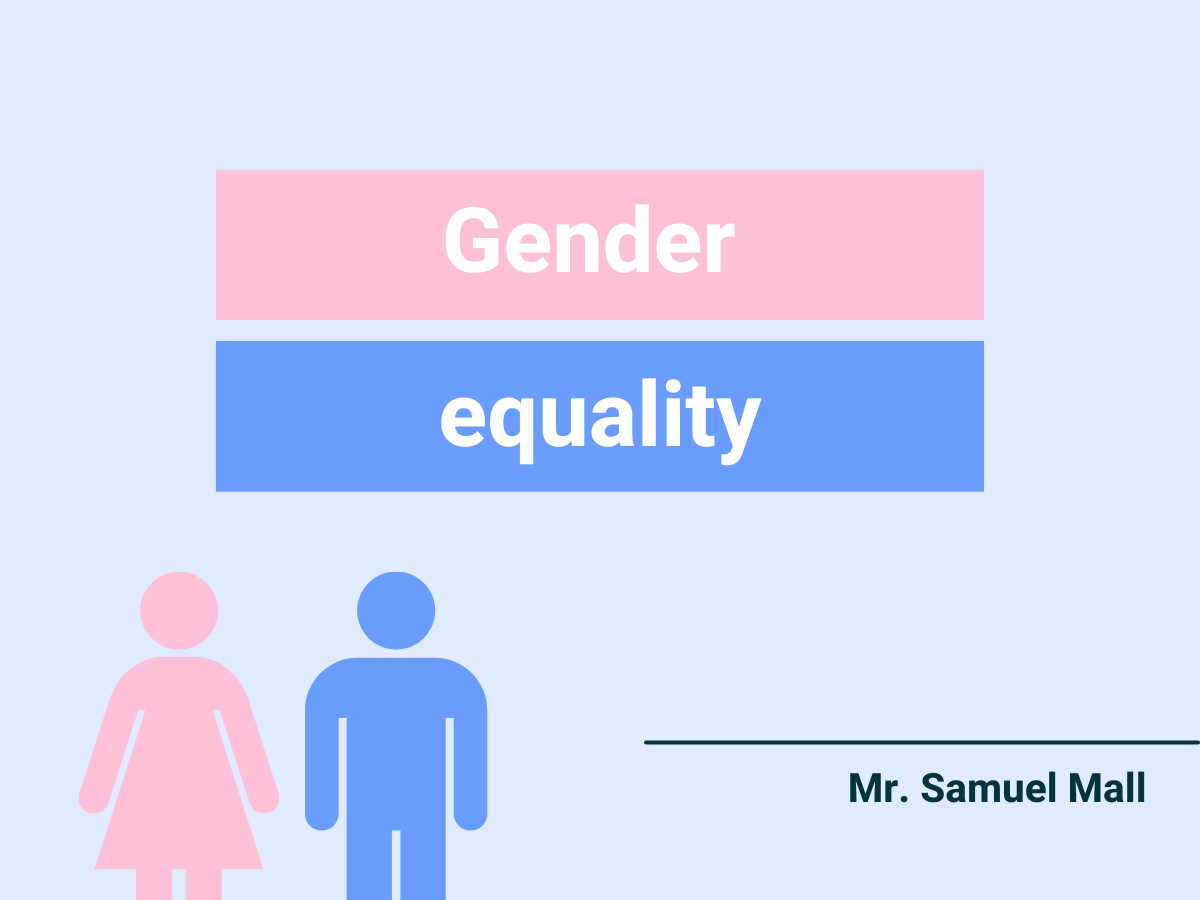
The world into which Jesus came was not just Jewish; it was Greeko-Roman-Oriental that was male oriented.
It was a culture where house was a decisive point of reference for a women’s life. Women found fulfillment in the company of children and other women. The girls were restricted to only home education. A woman was a provision to ensure posterity for a man who died without having children. ‘If brothers are living together and one of them dies without a son, his widow must not marry outside the family.
Her husband’s brother shall take her and marry her and fulfill the duty of a brother-in-law to her’ (Deut.25:5). A woman without man was without status, without social security, and without identity. This is reflected explicitly in the Sadducees exposition of the problem. ‘Some of the Sadducees, who say there is no resurrection, came to Jesus with a question. “Teacher,” they said, “Moses wrote for us that if a man’s brother dies and leaves a wife but no children, the man must marry the widow and have children for his brother.
Now there were seven brothers. The first one married a woman and died childless. The second and then the third married her, and in the same way the seven died, leaving no children. Finally, the woman died too. Now then, at the resurrection whose wife will she be, since the seven were married to her?”’ (Lk.20:27-33). The question put up by the Sadducees was a well thought off. The Sadducees try to trap Jesus and expose the belief in resurrection as absurd, because they themselves did not believe that there was resurrection.
The questioned was aimed at destroying Christ influence with the multitude and placing him and his supporters in an unpleasant position. Because For a Rabbi to be seen speaking to women in public was an end to his reputation. The strict Rabbis forbade a Rabbi to greet women in public; he will not speak to his own daughter, wife or sister in public. They women are incapable of receiving any real teaching and said ‘better that the words of the law should be burnt than to deliver it to women’. ‘Jesus replied, “The people of this age marry and are given in marriage.
But those who are considered worthy of taking part in that age and in the resurrection from the dead will neither marry nor be given in marriage, and they can no longer die; for they are like the angels. They are God’s children, since they are children of the resurrection’ (Lk.20:34-36). From Jesus’ reply we observe: Jesus was sensitive to the social and religious handicaps with which women had to struggle.
By Rabbinic standards Jesus could hardly do anything more shattering unconventional talk about women as he did in this passage. The question on resurrection here was based on the materialistic view of resurrection. Jesus removes this erroneous bias and shows that the question is futile; the skepticism of Sadducees about resurrection is corrected by Jesus. This correction was carried out in a specific way in which Jesus crashed many barriers. He broke culture by speaking on behalf of her, Jesus’ answer rejected the claim that the example of Levirate marriage represented a relevant objection to the faith in future resurrection in which marriage was instituted for mans procreation and to ensure his after life through his children.
Jesus broke culture by bringing her to the level of men, A different nature of resurrected life is emphasized in which Immortality is considered more essential than sexuality in heavenly life, the need of marriage ceases when resurrection is promised implying that a woman no longer belongs to any man. As a result Jesus’ reply broke the tradition where women was considered as mere objects or instrument. Jesus broke culture by affirming her worth in society, Instead of Sadducees making Jesus absurd,
Jesus revealed to the people their ignorance and blundering. Jesus reply to Sadducees suggested that participation in future life is no more dependent of procreation as a result patriarchal intentions in marriage can be abandoned. The reply of Jesus positively promoted liberation of women where it gave them the possibility of power and an opportunity to move outside gender determined roles given by society.
The story of Jesus as it has come to us is inspiring in our quest for gender equality. He was on the side of women, where they were sign of weakness. Jesus spent time on question regarding women that viewed women almost on the level with possessions; Jesus showed favor, love and respect for women, he gave them moral activity.
Jesus Christ raised women above the condition prevalent then. He certainly broke his tradition and tried to reform it for the benefit of all. What does it mean for us to have balanced gender voices in our midst? What is the difference? This is the beauty of Jesus’ reply to the Sadducees; we are free, free to be different. We are free to be liberators in times of gender oppression. We are part of a divine partnership. Our relationships are an expression of divinity. We should celebrate this divine balance of different human energies that makes us who we are. We are free to explore gender balance, both within ourselves and as a group. In doing this we will all be part of a movement that includes but transcends feminism. It will be a movement for gender liberation. May the Good lord help us in our ministries and grant us courage in setting up right standard of relationships among gender.
Author: Mr. Samuel Mall is a BD student at the United Theological College, Bangalore, He hails from Punjab.


